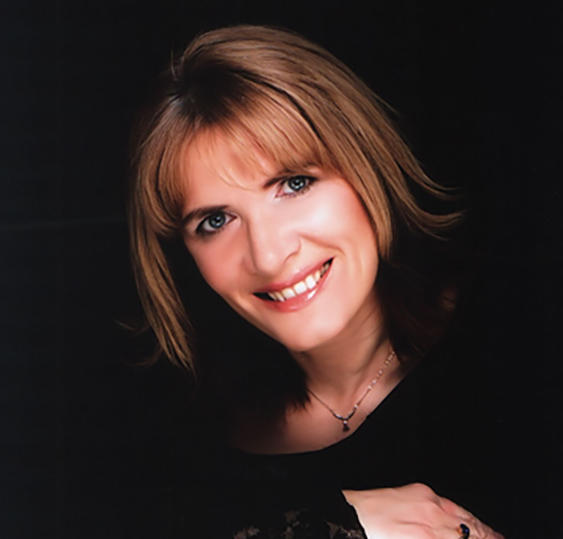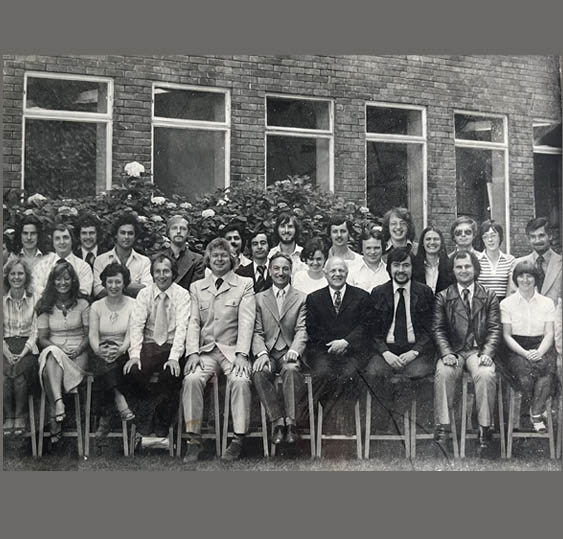Founder of Telesgop and Producer
I originally went to Swansea University to study zoology and microbiology because I was obsessed with small, invisible things! In the first year I had to choose two other subjects. I chose chemistry as one of them - but then it was a dilemma to choose between biochemistry and psychology as I knew nothing about either subject at the time. I thought psychology would involve a lot of essay writing so biochemistry won. At the end of the first year, I received a very kind letter in my mailbox from the Biochemistry Department inviting me to do a degree in pure biochemistry. It said that I had passed the exam very well and I must admit I felt quite proud, so I changed my mind about zoology and microbiology and joined the biochemistry school for the next two years. I learnt later that everyone doing biochemistry that first year had the same letter!! Very soon however, I realised that biochemistry really appealed to me, as all the reactions in cells are completely invisible and surprisingly clever. So, the decision was right after all! I graduated in 1978. Biochemistry has changed a lot since then!
After graduating, I trained to become a teacher, but never applied for a job. I researched the suitability of science education through the medium of Welsh, which has always been of great interest to me. At that time (1979) there were very, very few opportunities to study science in Welsh. Following 5 years as a scientist at the Welsh Water Authority, I started a career producing and presenting television and radio programmes - trying to focus as much as possible on scientific subjects. 30 years ago, I founded Telesgop media company, employing teams of people to produce programmes such as Ffermio, Bro, Y Sioe Fawr, and hundreds of others. Personally, I have tried to stick to scientific programmes such as Dibendraw, Her yr Hinsawdd on television and Yfory Newydd and Y Cwestiwn Mawr on BBC Radio Cymru. Radio is my first love.
Tell us a little about your time at University by sharing your favourite memories or experiences.
My time at Swansea was exciting. It was the time of fighting for the Welsh language, competing in the Inter-Collegiate Eisteddfod, demanding justice for women, finding my feet and going to the beach! Amid all that, I fell in love with biochemistry.
One of the best experiences I had was being taught by my tutor, the late Dr John S Davies, Chemistry. We became friends after I made a big mistake which led to hot acid shooting out of a flask and making a hole in the ceiling! Dr Davies realised, as I was dodging the shower, that I spoke Welsh and he was a huge help to me for the rest of my time in Swansea. The hole in the ceiling was there for years too! Dr John S did great work promoting science through the medium of Welsh and was one of the founders of the National Eisteddfod’s Science Village.
Another experience which has stayed in the memory is the rehearsals of the Inter-Collegiate Eisteddfod. Swansea was never going to win much in the Eisteddfod because most of the passionate Welsh speakers at that time went to Aberystwyth or Bangor to study. But if there was a prize for enthusiasm, loyalty, and enjoyment - Swansea was always at the top! Somehow, I ended up conducting the choir; I still remember the piece 'Y Nefoedd Sy'n Datgan...' and seeing the faces of Meic Birstistle, John Id, Paul, Melody, Jen and Gwenith, Huw Bach and Huw Llai, and Cefin singing their hearts out. Then the climax, with Ieuan Eg at the helm – and a lot of help from a group of students from Chile, – we won the Noson Lawen!!!! Never happened before. What a celebration that was. And an example of how students from different cultures enjoyed and worked together. Swansea is still that kind of place.
There is no better campus anywhere than Swansea's Singleton Park campus. In the first year I lived in a hall of residence towards the Mumbles and owned a small Honda 70 motorbike (no one was to call it a moped!). Every morning and night I had to cross the busy Mumbles Road and have faith in my ability to put my foot on the throttle to avoid the traffic. I believe this is what has contributed to my ability to drive a car confidently in busy cities. There are now traffic lights, which are much safer but less exciting. Travelling to the beaches in the Summer were some of the best memories especially during the glorious Summer of 1976. But there was always a thrill in riding in my black leather and gauntlets up the lane towards the iconic canteen and parking amongst the BMW and Harley Davidson bikes of the more prosperous students….and dream!
Would you recommend Swansea to someone considering going to university?
Swansea University is more than a university. There is a spirit of enterprise, innovation and perseverance there. You can't avoid being thrilled by the history of scientific research that has taken place there in the past, especially in areas such as physics. The pioneers went from there to CERN in Geneva for example and contributed to the world's largest scientific experiment; or the person who invented the magnetron cavity for radar, which allowed Britain to win the Battle of Britain. Swansea was a beacon for the Industrial Revolution and for the development of science in general. It was a privilege to study in the Wallace building - named after the man who should be credited with the theory of Evolution; and then the Grove Building, after a scientist who developed the fuel cell, which is so key to electric cars today. Knowing that Swansea today leads the world in terms of green energy innovation gives me quite a thrill. I would really recommend Swansea University as an inspiring place to start a lifelong career.
Is there anything else you’d like to share?
I was a member of the Cymdeithas yr Iaith and was rather disappointed that it wasn’t possible to study biochemistry in Welsh. So, in order to prove a point, I proceeded to translate all my notes as I was writing them in my lectures, coining new terms myself without any logic or talent. Everything went well until I had to review my notes for exams, which were of course in English, and realised that I didn't understand anything of what I had written and couldn't make sense of the vague terms I used! I revised from friends' notes!! But it's great to be able to say that today it is possible, not only to study undergraduate biochemistry in Welsh, but that there are several students completing their biochemistry PhD in Welsh thanks to the Coleg Cymraeg Cenedlaethol. I've had the privilege of interviewing a number of them, and their wonderful lecturers. The late Dr John S Davies would be delighted.


